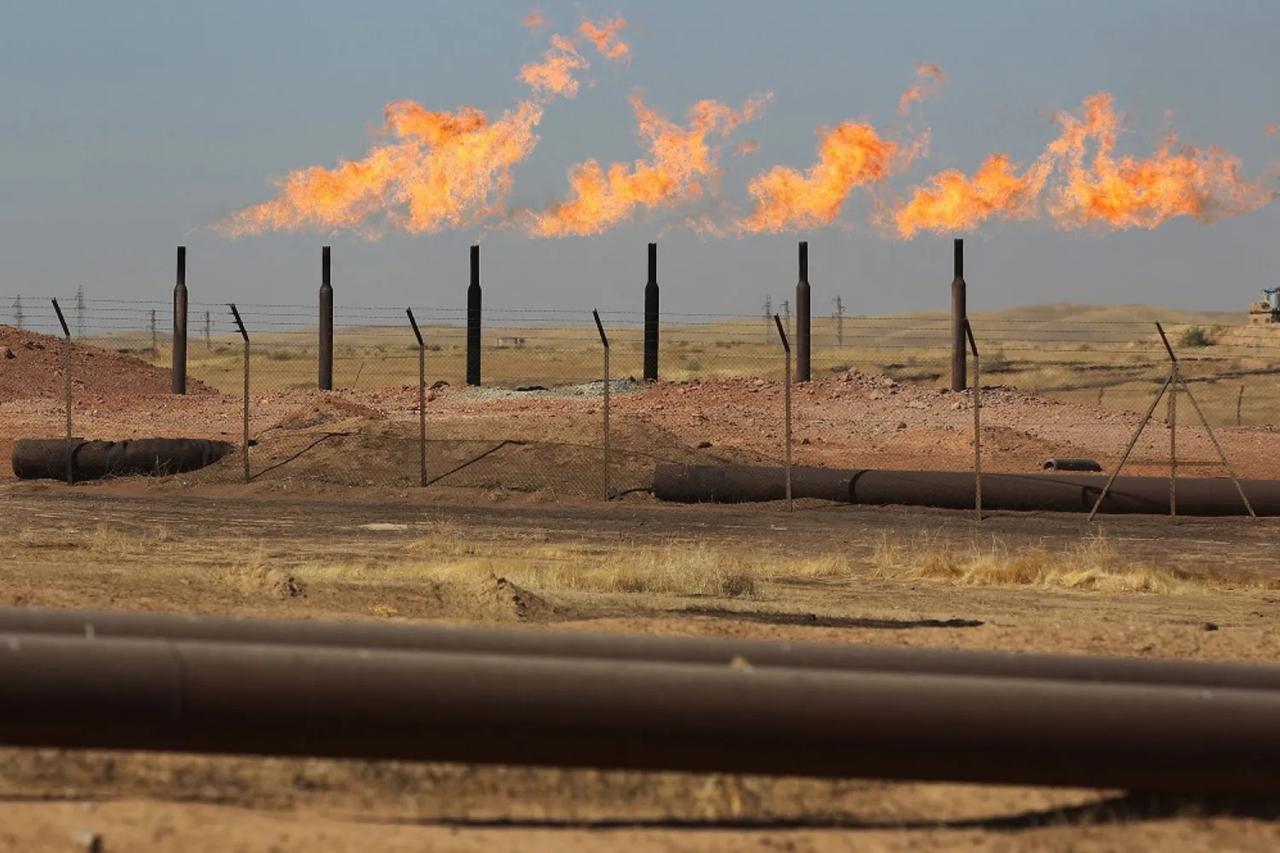
The Khor Mor gas field, one of the most important energy sites in the Kurdistan Regional Government of Iraq (KRG), came under a drone attack late Thursday night, halting both gas and electricity production.
The strike targeted the LPG facility within the field, forcing workers to immediately evacuate the area. No casualties were reported, but the scale of the damage marked a significant escalation compared to previous incidents.
Security officials noted to the local media that earlier drone sightings had been reported in the area, though no attack followed at the time. Emergency sirens were activated across the field, and personnel lodged nearby began leaving the vicinity out of concern that additional strikes could follow.
The gas field, located in the Chamchamal district near Sulaymaniyah, is operated by the UAE-based Dana Gas. The company’s infrastructure supplies natural gas to several power stations across the Iraqi Kurdistan Region. The sudden cutoff immediately disrupted electricity generation, reminding the region’s vulnerability to targeted strikes on energy infrastructure.
Following the attack, the KRG’s Ministries of Natural Resources and Electricity issued a joint statement announcing the full suspension of gas flows to power plants. The halt pushed electricity output from roughly 4,000 megawatts to about 1,000 megawatts, reducing daily supply in some areas from 24 hours to as little as five.
Technical teams from both ministries began working alongside Dana Gas engineers to assess the damage and coordinate emergency response procedures. The ministries emphasized that restoration efforts were underway but offered no timeline for resuming operations.
The interruption underscored the strategic significance of Khor Mor, which supports both domestic electricity needs and the wider regional energy balance. Any long-term disruption risks amplifying economic pressures in an area already burdened by political fragmentation and ongoing security threats.
The attack drew swift condemnation from authorities in Baghdad and Erbil. Iraq’s Prime Minister Mohammed Shia al-Sudani spoke with Kurdistan Region Prime Minister Masrour Barzani, pledging cooperation to identify and apprehend those responsible. The two agreed to establish a joint investigative commission to pursue the perpetrators.
Kurdistan Region President Nechirvan Barzani described the strike as a “terrorist act” aimed at undermining the region’s economic infrastructure and public services. He stressed that such attacks threaten the stability not only of the region but of Iraq as a whole.
No group has claimed responsibility for the strike, but analysts and local officials have pointed to Iran-linked factions as potential actors. Drone capabilities have become increasingly accessible to non-state groups in Iraq, complicating attribution and response efforts.
The Khor Mor field has experienced several security incidents in recent years, but the latest attack appears more sophisticated, involving a direct hit on a key processing facility rather than broader perimeter harassment.
Regional observers note that the timing and precision of the strike could indicate an intent to pressure political negotiations, disrupt energy exports, or signal displeasure with external partnerships. The field’s output is integrated into wider energy markets, with oil and gas from Iraqi Kurdistan routed to international buyers through Türkiye.
Operated by Dana Gas, the Middle East’s largest private-sector natural gas company, the Khor Mor field is central to electricity generation across the Kurdistan Region. Disruptions at this site ripple quickly through the local grid, highlighting the region’s dependence on a single integrated infrastructure system.
Established in 2005 and listed on the Abu Dhabi Securities Exchange, Dana Gas maintains operations in the UAE, Egypt, and Iraqi Kurdistan. Its investments in Khor Mor have expanded steadily over the years, making the field a pillar of the region’s growth strategy. The latest attack signals the risks that international energy operators face amid Iraq’s evolving security dynamics.
As authorities work to restore production, the incident raises broader concerns about the sustainability of energy development in a landscape marked by political competition, emerging armed actors, and recurring infrastructure vulnerabilities. The coming weeks will reveal whether the response from Baghdad and Erbil can mitigate those risks, or whether Khor Mor becomes a symbol of deeper instability in Iraq’s energy future.